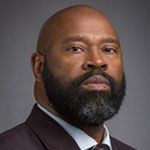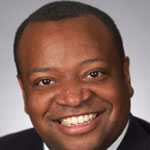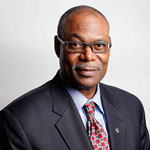Connect with Top Criminology and Criminal Justice Professors on Twitter
These top criminology and criminal justice professors are active researchers who have authored articles or books on systemic issues such as sentencing reform and police surveillance. A number of these professors study domestic violence and crimes against women, while others specialize in areas like prison reform, extremism, and how race impacts the treatment and punishment people receive from law enforcement and the broader criminal justice system. Several are leaders at their respective schools, and most participate in trade organizations or nonprofits aiming to shift public policy. All are involved and engaged on Twitter.

Rosemary Barberet is a professor of international criminal justice at the John Jay College of Criminal Justice Sociology Department. Her career in criminology has included lecturing in Europe as well as representing the International Sociological Association at the United Nations. She is a member of the organization’s executive council. Her most recent book came out in 2014 and is titled “Women, Crime and Criminal Justice: A Global Enquiry," and she often tweets articles and posts related to the intersection of feminism and criminology.

Joanne Belknap is a professor of ethnic studies at the University of Colorado where she is a faculty research associate with interests in “gender-based abuse and the trajectory of trauma to offending among women and youth, and the intersections of marginalization." In 2014, she served as president of the American Society of Criminology. She has also served on former U.S. Attorney General Janet Reno's Violence Against Women Committee as well as state advisory boards for female offenders. Her tweets often relate to news, politics and social justice issues.

Robert A. Brown is associate professor and chair of the Department of Criminal Justice at North Carolina Central University. HIs research interests include interactions between police and citizens as well as race and gender as they relate to criminal justice processes. He also serves as program evaluator for the Cumberland County, North Carolina, Veterans Treatment Court, and as the evaluator for the Fayetteville Police Departments Law Enforcement Assisted Diversion Program. He often tweets about criminal justice issues and their intersection with news, politics and culture.

James Byrne is associate chair and professor at the UMass Lowell School of Criminology and Justice Studies. His research interests largely relate to sentencing and corrections, including the effectiveness of “various forms of offender treatment and control." He is the editor-in-chief of the journal Victims & Offenders, which is focused on international criminal justice policy. He often tweets articles related to criminal justice issues, in particular sentencing.

Roger A. Fairfax Jr. is a senior associate dean for academic affairs and research professor of law at The George Washington University School of Law. His research includes criminal justice reform and studies the criminal process, grand juries and prosecutorial ethics. He previously worked as a prosecutor in the U.S. Department of Justice’s Public Integrity Section of the Criminal Division investigating public corruption as well as in white collar crime defense at the Washington, D.C. firm O'Melveny & Myers LLP.

Andrew G. Ferguson is a law professor at the University of the District of Columbia where he teaches criminal law, criminal procedure and evidence. His most recent book “The Rise of Big Data Policing" was published in September. He serves on the board for a nonprofit focused on young inmates called the Free Minds Book Club and Writing Workshop. Before becoming a professor, Ferguson was a supervising attorney in the D.C. Public Defender Service. He often tweets links related to criminal justice policy and tactics, in particular surveillance.

Jeff Kirchmeier is a law professor at CUNY School of Law whose classes include capital punishment and the courts. He is a member and past chair of the New York City Bar Association’s Capital Punishment Committee and works on death penalty cases. His book “Imprisoned by the Past: Warren McCleskey, Race, and the American Death Penalty" was published in 2015. He often tweets articles related to death penalty cases.

Gary LaFree is a professor of criminology and criminal justice at the University of Maryland as well as the founding director of National Consortium for the Study of Terrorism and Responses to Terrorism at the University of Maryland. He has served as president of the American Society of Criminology and on the Executive Board of the Harry Frank Guggenheim Foundation and for other organizations. He was also a member of the Democracy Collaborative, a research center dedicated to strengthening democratic institutions. He often tweets links about the growth and impact of violent extremism.

Kenneth B. Nunn is a law professor at the University of Florida Levin College of Law. He is the associate director of the school’s Center for Children and Families as well as assistant director of the Criminal Justice Center. He has worked as a public defender in San Francisco and Washington, D.C. and has been involved with several organizations, including the Innocence Commission of the State of Florida and the Association of American Law Schools Committee on Recruitment and Retention of Minority Law Teachers. His tweets often relate to the intersection of criminal justice and race.

John Pfaff is a professor of law at Fordham University School of Law where his courses include criminal law, sentencing law, and law and economics. He previously clerked for D.C. Circuit U.S. Court of Appeals Judge Stephen F. Williams. His research interests center around empirical evidence related to sentencing, including prosecutorial discretion and rising incarceration rates. His book “Locked In: The True Causes of Mass Incarceration—and How to Achieve Real Reform" was published in February. He frequently tweets about systemic criminal justice issues, including prosecutorial discretion.

Alex Piquero is a professor of criminology and the associate dean for graduate programs in the School of Economic, Political and Policy Sciences at UT Dallas. He was appointed to the Office of Justice Programs Science Advisory Board by former U.S. Attorney General Eric Holder and is associated with numerous academic and trade journals, publications, and organizations, including as past fellow of the American Society of Criminology and the Academy of Criminal Justice Sciences.

Carsten Stahn is a professor of international criminal law and global justice at Universiteit Leiden Law School where he directs the advanced L.L.M. Programme in Public International Law. He previously worked as legal officer in the Chambers of the International Criminal Court. His most recent book “The Law and Practice of the International Criminal Court" published in 2015. His tweets include articles about social and criminal justice issues worldwide.

Jeffrey T. Ulmer is professor and associate head of the School of Sociology and Criminology at Penn State. His ongoing research includes a study related to inequalities in federal and state sentencing, funded partly by the National Science Foundation, and a study related disparities in death penalty sentences. His tweets generally relate to criminal justice-related data and policy.

David Wilson is emeritus criminology professor at the Birmingham City University School of Social Sciences as well as the founding director of the school’s Centre for Applied Criminology. He is a former prison governor, analogous to a warden in the United States, where he worked with violent offenders, and also ran a sex offender treatment program. In 2015, he hosted a show called “David Wilson’s Psychopaths." He offers his Twitter feed on Saturday mornings to answer questions related to psychology and criminology.

Frank Wilson is an associate professor in the Department of Criminology at Indiana State University as well as an associated member of the school’s Department of African American Studies. His research interests include how the media depicts police officers and the effect it has on recruitment and retention. Agencies he’s worked for include the National Institute for Victim Studies and United States Probation and Pretrial Services. Wilson is also on the board of advisors for the online criminal justice forum and podcast Crimcast.tv.